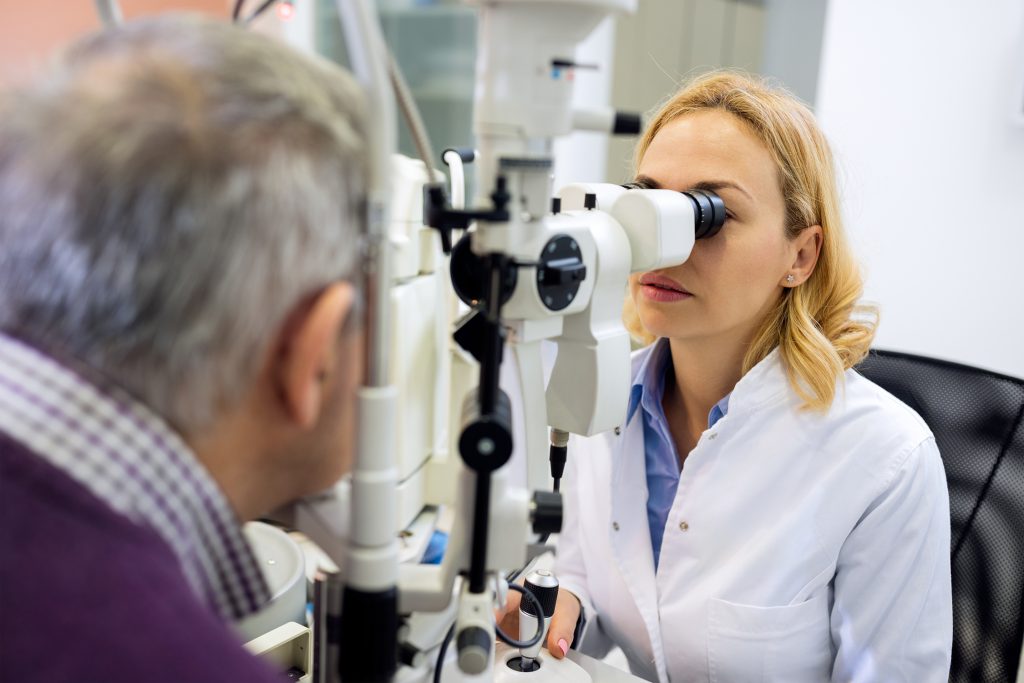Are Seniors Seeing Things Clearly?
Get a comprehensive vision exam every year. Seems obvious, right? According to the American Optometric Association, people value their vision as their most precious sense. But less than half had an eye exam in the past two or three years!
Preventive Care Is So Important
Preventive care is just not something that people readily think about. You might think your vision is fine, but the only way to be sure is to get your eyes dilated by an eye care professional and have your vision checked in a comprehensive exam. This is the only way to detect age-related eye diseases in the early stages.
Be Wise! Protect Your Eyes!
You should protect your eyes against harmful UV rays from the sun. These are strongest between 10 am and 2 pm. UV light can also go through the clouds, so it doesn’t matter if the sky is overcast. Glare and reflections can also be troublesome so have your sunglasses ready if you are around snow or sand, and if you will be driving.
If you have had cataract surgery, or have macular degeneration or any retinal problems, you should be especially careful to protect your eyes from UV rays.
Wear Your Shades
Buy sunglasses that protect you from 99 to 100 percent of both UVA and UVB light. You may also want to consider wrap-around sunglasses for extra protection.
Focus on Vision Health
These three diseases are the most common vision problems that seniors face.
Glaucoma
Glaucoma causes damage to the optic nerve and can result in permanent blindness. It’s often linked to a buildup of pressure in the eye. It tends to be inherited and may not show up till later in life. Glaucoma has no early symptoms or pain so you need to see your eye doctor regularly for diagnosis. Glaucoma is treated with prescription eye drops, laser surgery, or microsurgery to lower pressure in the eye.
Cataracts
Cataracts are cloudy areas in the lens of the eye that can cause changes in vision. Symptoms of cataracts include cloudy or fuzzy vision and sensitivity to glare. Cataracts aren’t painful. You may notice that it’s harder to see at night. You may be more sensitive to light and see halos around lights. Some people see things in doubles and colors may not seem as bright. Cataracts are treated with surgery to replace the lens in the eye.
Macular Degeneration
There are two kinds of macular degeneration: wet and dry. Most people have the dry kind. Bits of fat and protein, called drusen collect under your retina, the tissue at the back of the eye that processes light. We do not know where the drusen come from, but in the advanced stages of dry macular degeneration they become larger and more numerous and keep oxygen from reaching your eye. Vision loss occurs slowly.
Wet Macular Degeneration
Wet macular degeneration usually gets worse, and occurs much more quickly than dry macular degeneration. In wet macular degeneration, extra blood vessels form under the macula. These leak blood and fluids into the eye causing damage to your vision.
Macular degeneration is an age-related condition. But genes play a great role. If you have family members with either wet or dry, you should have an annual exam with an eye doctor.










Comments are closed.